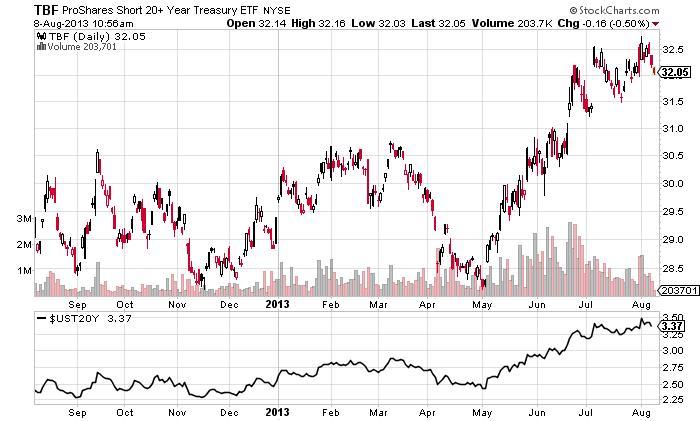The recent shift in market sentiment towards interest rates has caused many people to begin scratching their heads, wondering what this means for their investment strategy.
This move up in interest rates should not be a surprise to my readers, as you’ve been hearing me discuss this issue since last December, when I opined that the worst investor mistake you could make is to remain heavily invested in long-term bonds.
Obviously, with the market sentiment shift we’ve seen in bonds over the past couple of months, if you adjusted your investment strategy at the time that I warned my readers, this would’ve saved you a significant amount of money.
While some might consider entering the fixed-income pool once again by increasing their share of bonds for their overall investment strategy, I would still caution against making such a move.
Also Read: NYSE Holidays 2013
I do agree that market sentiment has shifted dramatically, which can, at times, provide an excellent entry point. However, because of what I foresee occurring over the next six months, I would still rate long-term bonds as the worst investment you can make right now.
To begin with, I believe there is a high probability that the Federal Reserve will begin reducing its asset purchase program this fall.
If market sentiment is weak right now for bonds, do you really think it will improve if the largest buyer of Treasuries decides to reduce its purchases? I think the exact opposite will occur, with more institutions shifting their investment strategy away from long-term bonds.
You might state your beliefs that the economy is not strong enough for the Federal Reserve to begin adjusting monetary policy. I would agree that even though the economy is not growing at a very fast rate, it is still improving. The asset purchase program was put in place as an emergency measure; I think we can all agree that the economy is not in a state of emergency at this time.
Now, I am not stating that the economy is perfect—far from it. However, the emergency measures put in place by the Federal Reserve should not remain in effect for much longer. All we’re doing is creating potential for new bubbles to expand.
I don’t believe market sentiment has fully absorbed what this means for the bond market. While interest rates have moved up, they are still extremely low on a historical basis.
One should not make a long-term decision regarding investment strategy based on the current interest rate environment, as we still have a huge buyer (the Federal Reserve) making purchases every month. My assertion has been that once the Federal Reserve begins reducing its asset purchase program, many institutions will remodel their investment strategy portfolio, resulting in a significant shift in market sentiment.
If you’re not preparing for this market sentiment shift in bonds, I believe you’re making a huge mistake. At the very least, adding in some hedge protection as part of your investment strategy makes some sense.

Chart courtesy of www.StockCharts.com
There are various ways to add a hedge to your investment strategy. The chart above shows the ProShares Short 20+ Year Treasury ETF TBF. This exchange-traded fund (ETF) trades inversely to 20-year bonds. The black line in the bottom of the chart above shows interest rates for these 20-year bonds; as you can see, as the interest rates have moved up, so has this inverse ETF.
Obviously, the shift in market sentiment has been dramatic since May. While I am not recommending that you add this ETF as part of your investment strategy right now, it is certainly something to consider as part of a well-diversified portfolio over the next few months.
This article Why I Still Believe Bonds Are the Worst Investment was originally published at Investment Contrarians
© 2025 Benzinga.com. Benzinga does not provide investment advice. All rights reserved.
Trade confidently with insights and alerts from analyst ratings, free reports and breaking news that affects the stocks you care about.